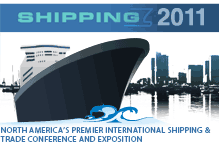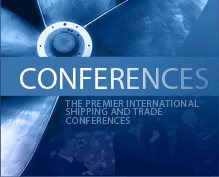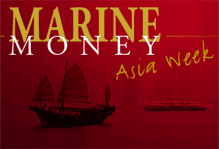
SHIP REGISTRY, MORTGAGES AND LIENS IN THE DIGITAL AGE
By Glen Oxton, Healy & Baillie, LLP
The internet changes everything. Undoubtedly ship registries eventually will be affected. This article reviews the potential benefits of a digital registry, how one might work, and some of the present obstacles to going digital.
An electronic registry would make the ship registry process faster, more convenient and reliable. It would reduce expenses for the owners both directly by reducing transaction costs, and indirectly by reducing risk to lenders. In addition, since more deals are done when deals are easier to do, it could provide increased liquidity in the purchase, sale and finance markets for ships. Registries will not become fully digital, however, until rules and standards for certification authorities are established and digital signatures become more widely used. The drive to eliminate paper records, as reflected in adoption by the courts of electronic filing systems, is likely to spur use of digital signatures. Continue Reading
THIS LITTLE PIGGY GOES TO MARKET
By Nicolai Heidenreich
After waiting for months upon end for a prospectus to come in the mail, our prayers were answered in early February when we received Stelmar’s prospectus for their proposed $91 million IPO, underwritten by Jefferies and Alpha Finance.
After a failed attempt at listing their tanker company on the Cyprus Stock Exchange in the fall of last year, Stelios Haji-Ioannou decided to try his luck on the New York Stock Exchange. Net proceeds from the offering will be used together with a $140 million credit facility to fund the $216 million purchase of 10 Handymax tankers from Osprey. Continue Reading
India: Future Global Player?
By Peder A. Bogen
The Marine Money International Ship Finance Forum India, at the Taj Mahal Hotel, Mumbai on February 20th 2001 attracted every major Indian shipowner as well as a large array of financiers to exchange thoughts about the market and the expected need for more ship finance.
MarineMoney can only express our satisfaction and appreciation due to the intense interactivity developed during the day. The domestic market and the foreign institutions were actively involved in Q&A sessions following each presentation as well as the 45 minute round table discussion summarizing the day. Continue Reading
From the Editor, A Luffing Tanker Market?
On February 21, Stephen Gengaro of ING Barings published research on TK Shipping (NYSE: TK) reiterating their Strong Buy on the shares, which on that date were trading at $41.95, placing a 12 month target of $70.00 and earnings per share of $10 on the shares.
The same day, Jim Winchester of Lazard Frères reiterated his Outperform rating and placed a target of $45, with an EPS of $8.15, on the shares. Interestingly, Winchester downgraded TK from a Buy to Outperform on January 10th 2001 lowering the price target from $45-$42 and indeed, while Freshly Minted praised this research, it stated that the “aggressive punter…may still fair well as a bull”. Well, Lazard’s target is again $45 today, at which point they previously rated TK a Buy, yet the rating remains an Outperform. Continue Reading
Dole Food Company Sliding Into First
By Geoff Uttmark
Probably more than any other globally traded commodity, bananas are a staple in the diet of international metaphor, analogy, even morphology. On the latter point, the argument begins with European and North American debates about the merits of short curved Gros Michels vs. long, straight Cavendishes and ends with the fact that all banana plant species everywhere require about nine months to produce new bananas. More seriously, banana production, transportation and marketing tie together a host of important political, sociological, environmental and financial issues that remind us that developed and developing are merely fashionable words today to describe geographic neighborhoods on a globe we all share. In recent months, the EU / US banana trade dispute has again grabbed headlines, especially since Chiquita Brands has laid the blame for its possible bankruptcy squarely at the feet of the EU. Our weekly publication Freshly Minted placed Chiquita’s problems more in Cincinnati than in Brussels and more recently, the New York Times reported Continue Reading
ARE TANKERS A COMPELLING INVESTMENT, EVEN IN THIS MARKET?
By Urs M. Dür
Marine Money came across information about a possible deal between Dynacom and SKShipping for three VLCCs during the week of February 19-23rd. Firstly we must make abundantly clear that by no means is this short piece declarative of what might be done or what will be done in this rumored deal or any other deal mentioned herein. We have taken a hypothetical approach for the purposes of illustration. All noted parties are highly respected members of the shipping community with tremendously successful track records and we wish them all the success possible. Continue Reading
Scrapping, an Indian Institution
By Urs Dür
Marine Money has focused some of this issue on what India builds in the shipping industry. However no discussion of India and contemporary shipping can be had without some mention of the art, and I argue that it is an art albeit messy, of shipbreaking.
Last year, Indian concerns scrapped 8.4 million deadweight – down from over 10mdwt in 1999 – which at the amalgamated (tanker/drybulk) current price is about a $300m industry or thereabouts. Of the 22 million dwt scrapped in 2000, 63% was scrapped in India, Pakistan or Bangladesh according to Clarkson’s research. The other deadweight was taken by the Chinese (about 18%) and western countries disposing of specialized tonnage. In recent years India’s market share has diminished at the expense of the Chinese but the largest impact of the Chinese has been against the Pakistani and Bangladeshi markets. Continue Reading
McKeever Speaks at TRF
There is an expression in Washington that administrations come and go but the bureaucracy marches on. And some of that bureaucracy marches to the top. Associate Administrator for Shipbuilding, Ms. Jean E. McKeever, is one of the people at MARAD (Maritime Adminstration, U.S. Department of Transportation) who is an asset to whomever sits in the White House, Secretary of Transportation’s, or Maritime Administrator’s chair. At Marine Money our highest accolade is someone you should know. Continue Reading
INDIA: Catch a Rising Star
By Geoff Uttmark and Urs Dür
“If you want to be a global player in the 21st century, you must have a presence in India.”
—U.S. State Department Press Release 1998
7th: largest country
6th: longest river
5th: largest economy
4th: largest rail system
3rd: largest road system
2nd: largest population
1st: largest democracy, tea exporter, movie maker and oldest stock exchange in Asia
It should come as no surprise that the world’s main exporter of mysticism is itself an enigma. Like a thespian playing dual roles, to some the sub-continent conjures images of staggering poverty, stultifying heat, rural backwardness, religious fractiousness and political divisiveness. To others, India is Kiplingesque accounts of the Kyhber Pass, the zenith of Victorian colonialism and reminisces of posh (Port Outbound, Starboard Home). Neither image defines India correctly, of course. Continue Reading
Great Eastern Shipping Company
“Powered by success and driven by change”
By Geoff Uttmark
Traded: Bombay Stock Exchange & GDR
Symbol: GESCO or code 32313 (GDR symbol GEGEF)
Price: Rs 45.90. GDR = USD $3.82, ratio 5:1
URL: www.greatship.com
When other Indian shipping companies were constrained by a strait jacket of government regulation, tied in knots by uncertainty or pinned down by a weak balance sheet, Great Eastern Shipping Company of Mumbai was expanding. Thinking big when others are thinking survival is the trademark of superior management. Some shipping managers are right some of the time and some are wrong most of the time. Very few are right most of the time. That in a nutshell is why Great Eastern is now the largest and most successful shipping company in India. GESCO’s rise demonstrates that the company does indeed “… continue to be a triumph of pioneering spirit powered by success and driven by change.” The company motto is more than sloganeering as Great Eastern has consistently taken the risks and reaped the rewards of sailing uncharted waters:
Continue Reading







